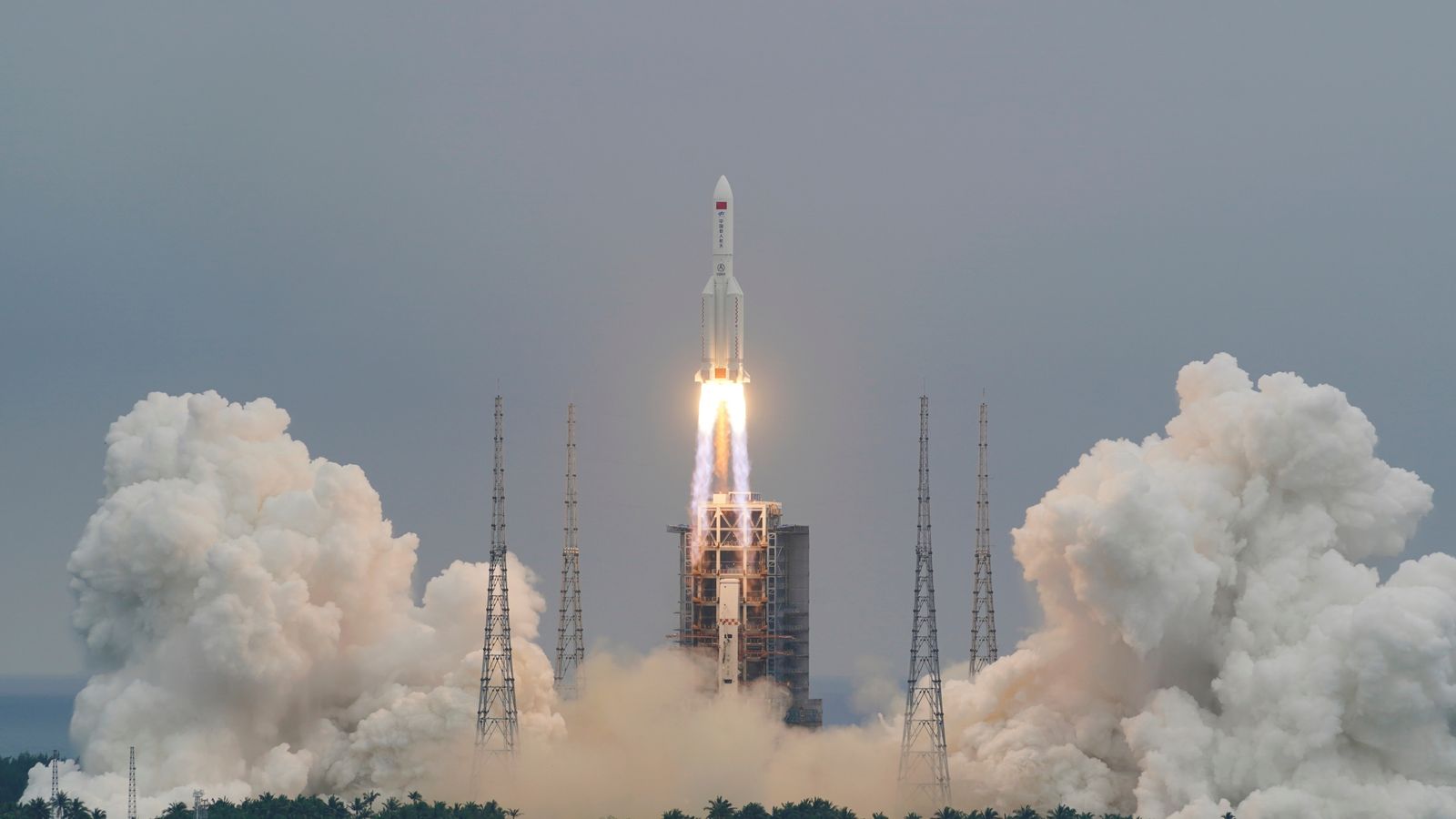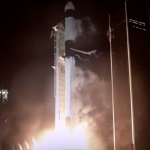An “out of control” Chinese rocket has landed in the Indian Ocean, China says.
The rocket, called Long March 5B, was launched from Wenchang Space Launch Centre on 29 April to carry Tianhe – the first module of China’s future space station – into orbit.
It re-entered the atmosphere at 3.24am UK time, with the bulk of its components destroyed at that point, according to Chinese state media.
The point of impact was somewhere southwest of India and Sri Lanka, they added.
While the timing of the landing had been pinpointed quite closely, the possible landing site had been unclear until the last minutes of the rocket’s descent.
At one stage it was thought the debris trail could fall as far north as New York, Madrid, or Beijing, and as far south as Chile and New Zealand.
There was some criticism of China’s lack of control over the descent, with US Defence Secretary Lloyd Austin saying: “There should be a requirement to operate in a safe and thoughtful mode and make sure that we take those kinds of things into consideration as we plan and conduct operations.”
Chinese state media had played down fears that the rocket could cause damage as a situation “not worth panicking about”, suggesting it would fall somewhere in international waters.
The rocket launch is part of China’s increasingly ambitious space programme, with Beijing planning at least 10 similar launches to carry equipment into orbit.
The space station will be complete by 2022, with China also planning to build a moon base in cooperation with Russia.






















